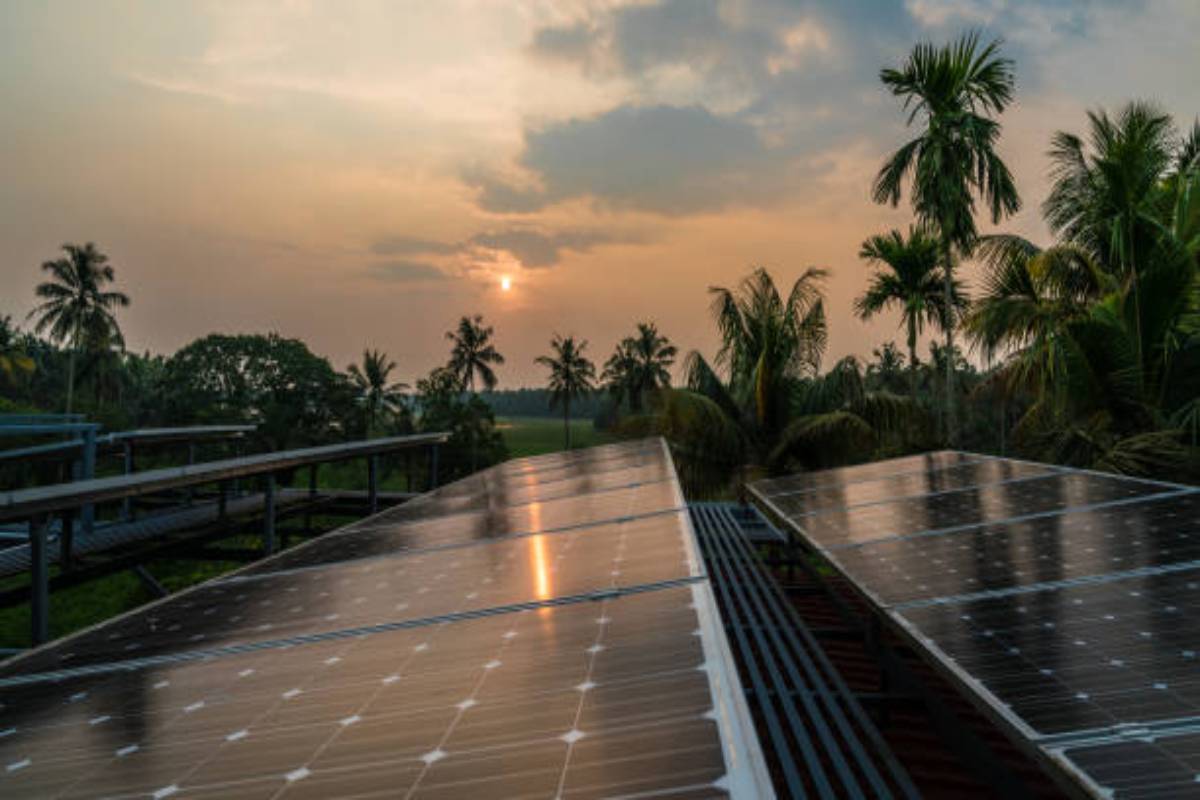Goa CM and Cabinet take holy dip at Triveni Sangam
Goa Chief Minister Pramod Sawant, along with his Cabinet colleagues and the state party president, took a holy dip at the Triveni Sangam on Saturday.
The National Portal will assist the households in their decision-making process by providing relevant information such as appropriate system sizes, benefits calculator, vendor rating, etc.

Representation image [Photo : iStock]
The Union Cabinet, chaired by Prime Minister Narendra Modi, has approved “PM-Surya Ghar”, Muft Bijli Yojana, with a total outlay of Rs 75,021 crore for installing rooftop solar panels and providing free electricity up to 300 units every month to one crore households. The PM had launched the scheme on 13 February, 2024.
The major highlights of the scheme include:
Advertisement
Central Financial Assistance (CFA) for Residential Rooftop Solar. The scheme provides a CFA of 60% of system cost for 2 kW systems and 40% of additional system cost for systems between 2 to 3 kW capacity. The CFA will be capped at 3 kW. At current benchmark prices, this will mean Rs 30,000 subsidy for 1 kW system, Rs 60,000 for 2 kW systems and Rs 78,000 for 3 kW systems or higher.
The households will apply for subsidy through the National Portal and will be able to select a suitable vendor for installing rooftop solar panels. The National Portal will assist the households in their decision-making process by providing relevant information such as appropriate system sizes, benefits calculator, vendor rating, etc.
Advertisement
Households will be able to access collateral-free low-interest loan products of around 7% at present for installation of residential RTS systems up to 3 kW.
Under the scheme, a Model Solar Village will be developed in each district across the country, which would serve as a role model for the adoption of rooftop solar in rural areas. Urban Local Bodies and Panchayati Raj Institutions shall also benefit from incentives for promoting RTS installations in their areas. The scheme provides a component for payment security for renewable energy service company-based models as well as a fund for innovative projects in RTS.
Through this scheme, the households will be able to save electricity bills as well as earn additional income through sale of surplus power to DISCOMs. A 3 kW system will be able to generate more than 300 units a month on an average for a household.
The proposed scheme will result in addition of 30 GW of solar capacity through rooftop solar system in the residential sector, generating 1,000 BUs of electricity and resulting in the reduction of 720 million tonnes of CO2 equivalent emissions over the 25-year lifetime of rooftop systems.
It is estimated that the scheme will create around 17 lakh direct jobs in manufacturing, logistics, supply chain, sales, installation, O&M and other services.
Advertisement